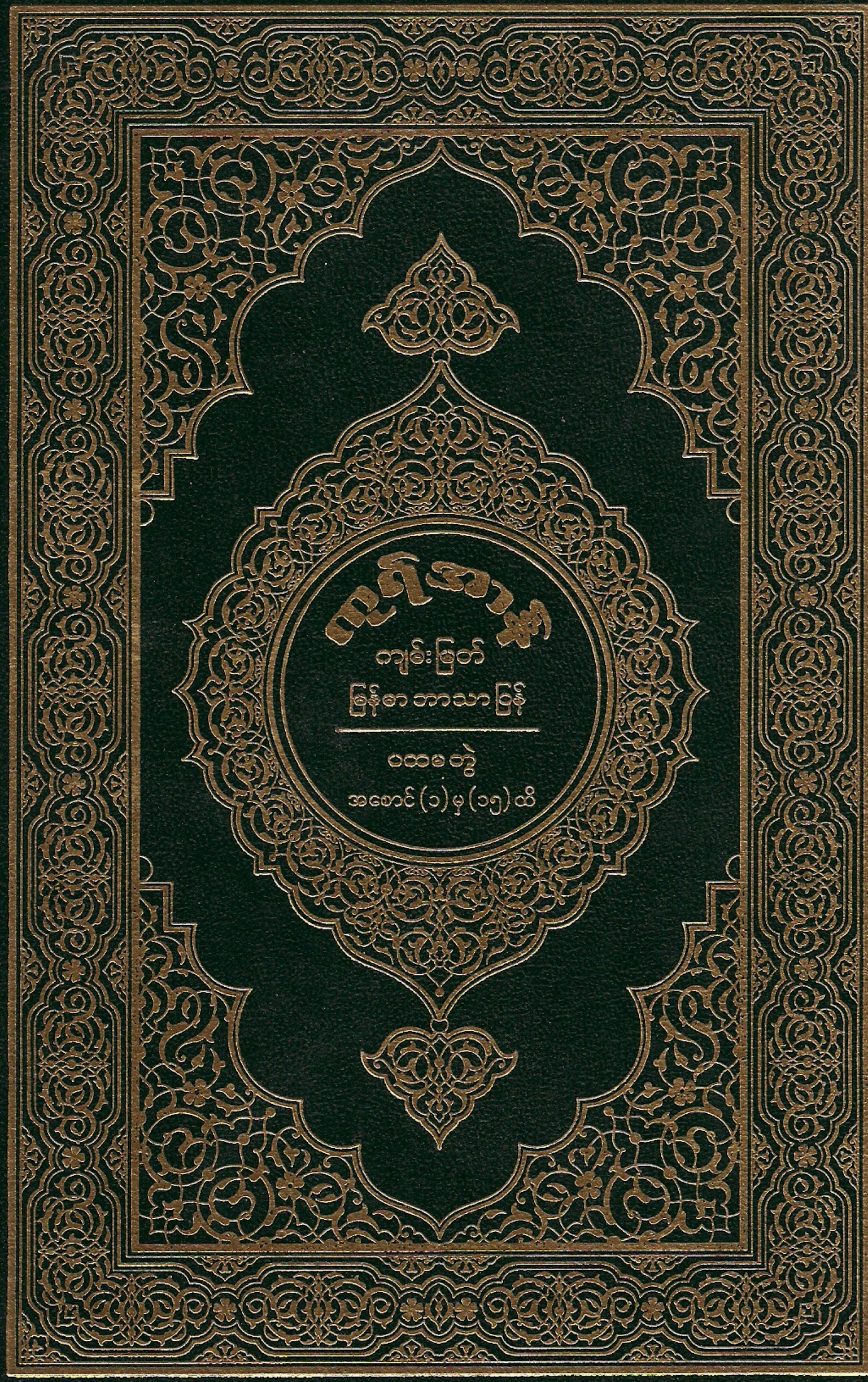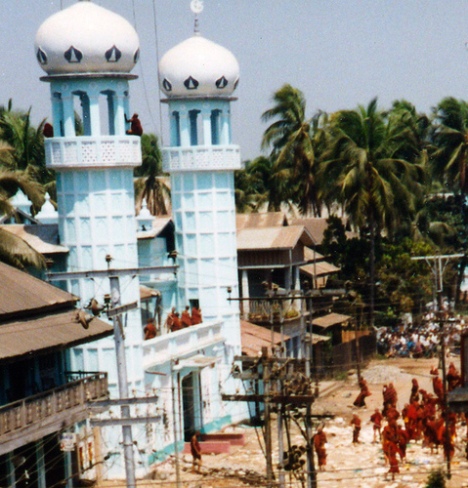from:malaysiakini
On Dec 13, renowned Swiss-born Muslim intellectual Tariq Ramadan will be in Kuala Lumpur to deliver a lecture in tribute to the late Muhammad Asad, whose translation and commentary of the Quran, ‘The Message of the Quran’, departs from the usual methodology of Quranic exegesis to become one of only few highly scholarly works on the Quran in the English language.
While Asad’s works, including his countless writings on Islam and Muslims, have huge ramifications to the debates surrounding contemporary Islam, including those presently taking centre stage in Malaysia such as the Islamic state issue and the problem of ‘blind following’ in matters of religion, it is important that we are introduced to Asad, his adventurous life and his thoughts in order to understand this intellectual giant who has been considered as Europe’s gift to Islamic scholarship.
Muhammad Asad was arguably one of the 20th century’s greatest Muslim thinkers from the West. Only recently, a public place called the Muhammad Asad Square was launched in his honour by the mayor of Vienna, his place of birth, making it probably the first traffic area to be named after a Muslim in Western Europe.
Earlier this year, a documentary film based on his widely acclaimed autobiography, ‘The Road to Mecca’, was produced by the Austrian director George Misch, placing his travels and thoughts in the context of contemporary debates surrounding Islam. It subsequently won many awards at international film fests this year, including for best cinematography.
Writer, adventurer, thinker, diplomat, commentator of the Quran – these words may best describe Muhammad Asad, Those who have followed his career through his books and writings, however, know that no one has contributed more in our times to the understanding of Islam and awakening of Muslims, or worked harder to build a bridge between the East and the West, than Asad.
But who was Muhammad Asad, the Jewish convert to Islam, whose transformation into one of the most influential modern thinkers of Islam was not before embarking on an adventurous journey throughout the Middle East at a time when the West’s cultural, political and military grip on the Muslim world was at its peak?
Asad was born Leopold Weiss on July 2, 1900 in Galicia, now in Poland, and part of the Austrian empire then. In 1926, he converted to Islam. The story of the years before his conversion, immortalised in ‘The Road To Mecca,’ reflects the spiritual odyssey of a man in search of a home, a man struck by wanderlust, unable to quell his restless spirit until embracing Islam.
In 1922 he became a Near East correspondent for the Frankfurter Zeitung, then one of the most outstanding newspapers in Europe. His career in journalism took him to Palestine, Egypt, Syria, Iraq, Persia, Jordan, Saudi Arabia and Afghanistan, and gave him a unique perspective on world affairs, particularly issues relating to Jews and Arabs.
Crossing the Mediterranean, Leopold’s first stop was at Cairo where he tried to learn Arabic and spend some time with Shaikh Mustafa Maraghi, a student of the Egyptian reformer, Muhammad Abduh. Mustafa Maraghi, a keen and critical thinker himself subsequently became the Shaikh of the University of Al-Azhar.
It was through his friendship with al Maraghi that he realised that Al-Azhar has lapsed into the sterility from which the whole Muslim world is suffering, and that its old impetus is all but extinguished. Those ancient Islamic thinkers would never have dreamed that after so many centuries their thoughts, instead of being continued and developed, would only be repeated over and over again, as if they were ultimate and infallible truths.
Just as some saints and scholars would be surprised to see their graves made into temples, many will also be shocked to see how their words were regarded as infallible truth. It is a trade of man to blindly hang on to the beliefs of the forefathers.
‘Avoid blind acceptance’
It is this blind acceptance of scholars’ opinions as if they were complete truths, which forms the crux of Asad’s concern in his thoughts and writings. Asad was convinced that the alien-layer that has covered Islam must be swept away before the scholars will wake up from their endless reading and repeating. He cautions against following blindly the thoughts of medieval Muslim scholars, without taking into account their historical and political context in which their interpretation of Islam took shape.
Asad believes that history can only give advice, show the underlying factors when a society was successful, but cannot decide the ruling of today’s states and societies. Every generation faces different circumstances, and thus many laws and ways for society cannot be fixed for all time.
This is why also the Quran only fixes time-less laws, ethics, rights and restrictions that are universal in its application. It is a constitution containing the basis for mankind’s dealing with life. Everything outside of the Quran is time bound and subject to reinterpretation by every generation to fit it to their circumstances.
Asad traveled to Amman, to Damascus, Tripoli and Aleppo, to Baghdad and to the Kurdish mountains, to that strangest of all lands, Iran, and to the wild mountains and steppes of Afghanistan. Traveling extensively throughout the Muslim world, his interest in Islam deepened.
To understand how Muslims could regenerate themselves, Asad took a characteristic approach: he immersed himself in understanding the source of Islam, the Quran. Embarking on an intensive study of classical Arabic, he began at the same time living among the bedouin of central and eastern Arabia whose speech and linguistic associations had essentially remained unchanged since the time of Prophet Muhammad when the Quran was being revealed. The results of this experience help him with his labour of love, ‘The Message’, a translation and commentary of the Quran.
Asad is wont to drive home in many of his writings that the decline of the Muslim civilisation was due to the manner in how Muslims practise their faith. As soon as their faith became habit and ceased to be a programme of life, to be consciously pursued, the creative impulse that underlay their civilisation waned and gradually gave way to indolence, sterility and cultural decay.
Goal in life
From that point on, Muslim renaissance became Asad’s goal in life. He traveled far and wide, conferred with kings, leaders and the common man “between the Libyan Desert and the Pamirs, between the Bosporus and the Arabian Sea”, and began putting his ideas on paper. ‘Islam at the Crossroads’, published as early as 1934, still stuns the contemporary reader with its analysis of Muslim decline and its bold prescription for instilling self-assurance to an Islamic world suffering the onslaught of western technology.
When World War II broke out, Asad was in India where he befriended Muhammad Iqbal, the spiritual father of the idea of a separate Pakistan. Iqbal persuaded Asad to abandon plans to travel to eastern Turkestan, China and Indonesia and “to help elucidate the intellectual premises of the future Islamic state”.
Asad was interned in India at the end of the war. When Pakistan was born in 1947, Asad was appointed its undersecretary of state for Near Eastern Affairs and became its permanent representative to the United Nations in 1952.
Here he met his wife, Pola Hamida, and later began writing ‘The Road to Mecca’ (1954), which was described by the New York Post as a “very rare and powerful book” and by the Times Literary Supplement as “a narrative of great power and beauty”.
A few years later, he wrote ‘The Principles of State and Government in Islam’, where Asad lays down in unambiguous terms the foundation of an Islamic state based on the Quran and Sunnah (traditions of the Prophet). Briefly, the two defining limits are that in an Islamic state true sovereignty lies with God and that believers must conduct all businesses pertaining to the state and community through mutual consultation.
Within this framework, Asad showed that an Islamic state had the flexibility to contain features of parliamentary democracy and the rule of law, including the modern institutions of presidency and the Supreme Court.
But it was ‘The Message of the Quran,’ published in 1980, which puts him among the greatest thinkers and interpreters of the Quran in modern times. He dedicates it to “People Who Think”.
“Think – and your reason will guide you to faith”, says Asad, instead of assuring us, as some other religions do, “Gain faith – and through your faith you will arrive at a comprehension of the truth”.
Leopold Weiss was born on July 2, 1900. Muhammad Asad died on Feb 20, 1992 and was buried in Granada, Spain.
ABDAR RAHMAN KOYA is editor at the Islamic Book Trust based in Petaling Jaya, and was News Editor of Harakah’s English-language section from 1998-2000. He is also correspondent for Canadian-based Islamic political news-magazine, Crescent International.
This article was written together with AHMAD FAROUK MUSA, director of the Islamic Renaissance Front (IRF), a NGO for empowerment of Muslim youth through knowledge.
IRF and IBT are organising a movie screening of ‘A Road To Mecca’ on Dec 12 and a public lecture on Muhammad Asad on Dec 13, by well-known Muslim intellectual Prof Tariq Ramadan. Details and registration here.
Filed under: Burma |












+(Small).jpg)


Leave a comment